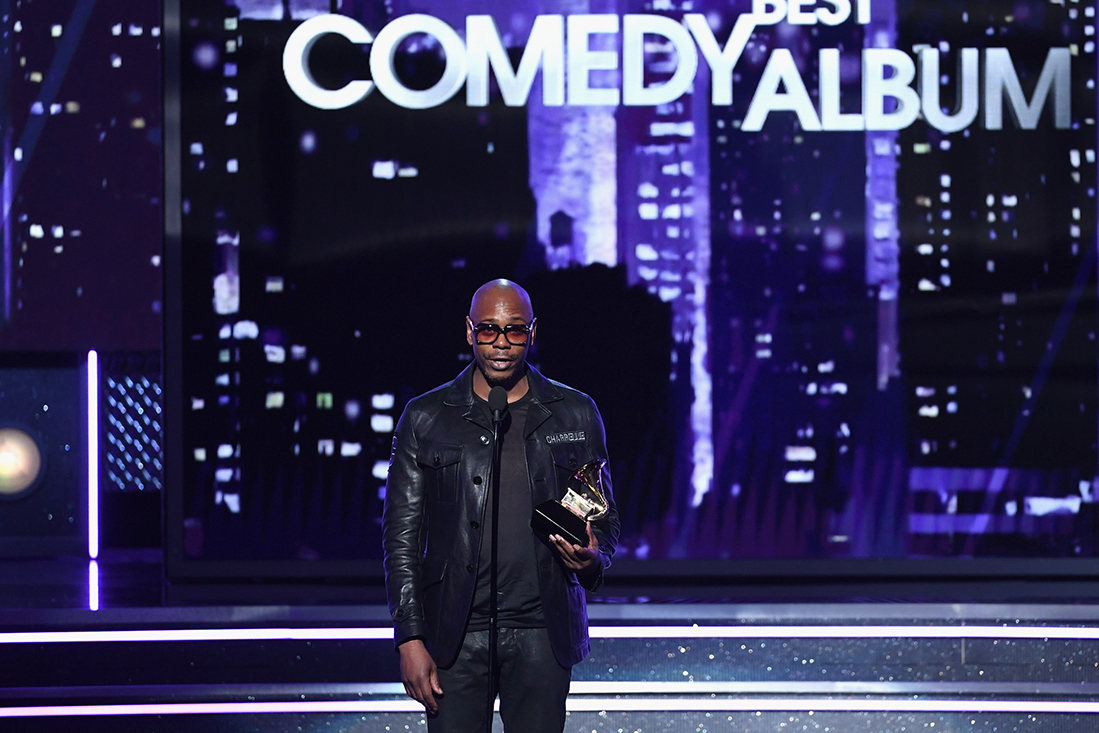He made a career pushing the envelope, but his material—including the N-word—is no longer edgy.
I had three major takeaways from comic Dave Chappelle’s most recent Netflix special. The first was that his comedy has lost something. The flourishes are still there but less frequent. The observations are still amusing but less reliably insightful. Mr. Chappelle has made a career out of pushing the envelope, but his Michael Jackson pedophile bits aren’t edgy. They’re just icky.
A second takeaway was that black offense at use of the N-word is so much playacting. Mr. Chappelle spends an hour incessantly and gratuitously ramming it into our ears. Which is nothing new among black comics, of course. Redd Foxx, Richard Pryor and Eddie Murphy also performed famously vulgar routines. What’s changed is the debate surrounding use of the N-word outside comedy clubs.
The founder of the Papa John’s pizza chain resigned as chairman following complaints that he used the word during a media-training session on race relations. A middle-school teacher in Wisconsin quit her job under pressure for citing the word as an example of inappropriate language. Princeton canceled a course on hate speech last year after students complained that a professor used the word during a discussion of offensive terms. Undoubtedly, there are some blacks who cringe at hearing the N-word in any context, but we can be fairly certain that none of them are undergraduates at Princeton.
White people are led to believe that a word that has permeated the most popular forms of comedy and music in the country for decades somehow sends black people into conniptions when they hear it in any other context. But the first time I recall hearing the word as a child, it was spoken by other blacks, and my experience is far from unique. Even today, blacks are far more likely than whites to use the term in public. And the selective outrage over its use has grown tiresome.
My third reaction to Mr. Chappelle’s show was how little black comedy seems to have evolved in recent decades. Racial themes still dominate. Harping on the otherworldliness of the black experience in America still wins laughs even as our neighborhoods and schools and workplaces become more diverse and integrated. Before Bill Cosby’s monstrous offstage behavior caught up with him, his career offered evidence of a huge appetite for nonracial humor from a black comedian. But Mr. Cosby continues to be the exception. Two decades into the 21st century, much of black stand-up seems stuck in the 1980s. The jokes have been updated, but the nature of the humor hasn’t really changed.
Mr. Chappelle and fellow black comedian Chris Rock are still the best at what they do, but Mr. Rock’s work strikes me as more subversive. While others obsess over what white people are doing, many of Mr. Rock’s most memorable routines zero in on black attitudes toward education, parenting and law enforcement. His sensibilities can be as shocking as his language, especially in a political environment where personal responsibility is passé and calling attention to counterproductive behavior is a no-no. Drug companies are to blame for the opioid crisis. The gun lobby is to blame for mass shootings. Racism is to blame for racial disparities.
Last month the New York Times marked the 400th anniversary of the arrival of the first black slaves to America. Slavery was a global evil dating back thousands of years, but it’s often discussed only in terms of Africans being enslaved by Europeans in the Western Hemisphere. The “legacy of slavery” is regularly invoked to explain black-white differences today in everything from homeownership to single parenting. But as far back as the late 1960s, U.S. census data show black immigrants from the Caribbean, which also has a legacy of slavery, far out-earning American blacks. And second-generation black West Indians were earning more than the U.S. average for all groups.
In 1907 Booker T. Washington, the educator and former slave, published a book detailing the economic progress of blacks since emancipation. He reported that between 1860 and 1900 black homeownership rates grew from infinitesimal to more than 20%, and that among homeowners a higher percentage of blacks than whites completely owned their residences. “I am unaware that history records such an example of substantial growth in civilization in a time so short,” wrote Washington. A hundred years ago, black marriage rates exceeded those of whites, and most black children were raised in two-parent homes. Today, that’s no longer true and slavery can’t explain the retrogression.
Liberals want to harp on how blacks have been treated, but a focus on how they progressed in earlier eras notwithstanding that treatment would be of far greater use to today’s black underclass. The black experience in America is much more than a history of what whites have done to blacks, even if our politicians, commentators and comedians often find it expedient to pretend otherwise.
This piece originally appeared at The Wall Street Journal (paywall)
______________________
Jason L. Riley is a senior fellow at the Manhattan Institute, a columnist at The Wall Street Journal, and a Fox News commentator. Follow him on Twitter here.
This piece originally appeared in The Wall Street Journal
